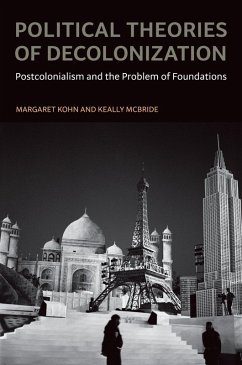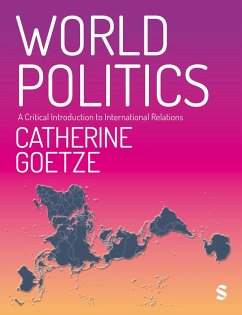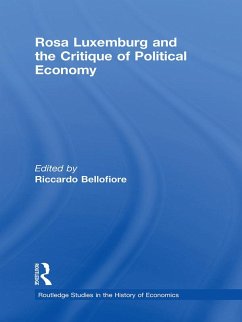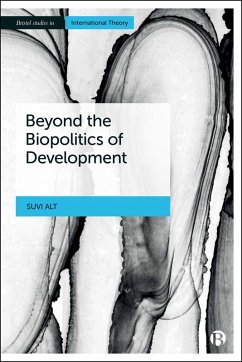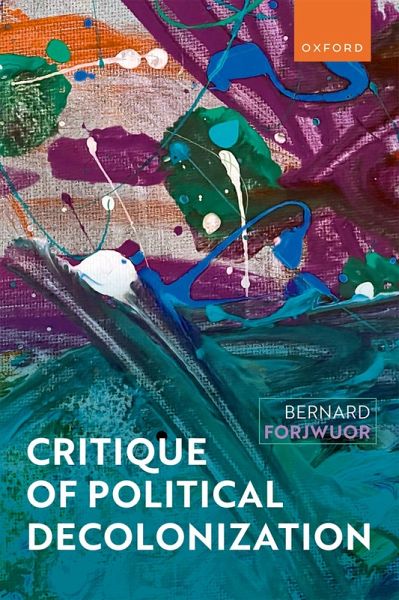
Critique of Political Decolonization (eBook, ePUB)
Versandkostenfrei!
Sofort per Download lieferbar
56,95 €
inkl. MwSt.
Weitere Ausgaben:

PAYBACK Punkte
28 °P sammeln!
What is political independence? As a political act, what was it sanctioned to accomplish? Is formal colonialism over, or a condition in the present, albeit mutated and evolved? In Critique of Political Decolonization, Bernard Forjwuor challenges what, in normative scholarship, has become a persistent conflation of two different concepts: political decolonization and political independence. This scholarly volume is an antinormative and critical refutation of the decolonial accomplishment of political independence or self-determination in Ghana. He argues that political independence is insuffici...
What is political independence? As a political act, what was it sanctioned to accomplish? Is formal colonialism over, or a condition in the present, albeit mutated and evolved? In Critique of Political Decolonization, Bernard Forjwuor challenges what, in normative scholarship, has become a persistent conflation of two different concepts: political decolonization and political independence. This scholarly volume is an antinormative and critical refutation of the decolonial accomplishment of political independence or self-determination in Ghana. He argues that political independence is insufficiently a decolonial claim because it is framed within the context of a country, where a permanent colonial settlement was never deemed necessary for the consolidation of future colonial political obligations. So, while territorial dissolution was politically engineered by Ghanaians, the colonial merely reconstitutes itself in different legal and ideological forms. Forjwuor offers new methodological, theoretical, and conceptual approaches to engaging the questions of colonialism, political independence, political decolonization, justice, and freedom, and constructs multiple conceptual bridges between traditional disciplinary fields of inquiry including politics, history, law, African studies, economic history, critical theory, and philosophy and political theory. Using the Ghanaian experience as a rich case study, Forjwuor rethinks what colonialism and decolonization mean, and asserts that decolonization is primarily a question of justice.
Dieser Download kann aus rechtlichen Gründen nur mit Rechnungsadresse in A, B, BG, CY, CZ, D, DK, EW, E, FIN, F, GR, HR, H, IRL, I, LT, L, LR, M, NL, PL, P, R, S, SLO, SK ausgeliefert werden.




